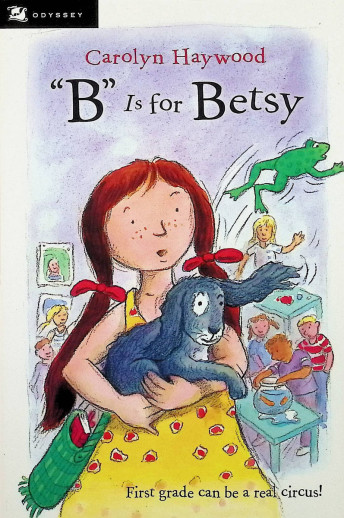We use cookies to make your experience better. To comply with the new e-Privacy directive, we need to ask for your consent to set the cookies. Learn more.
B is for Betsy
In B is for Betsy, it is the first day of first grade, and Betsy isconvinced that school is going to be terrible! However, she makes friends withEllen and Billy, and her teacher turns out to be really nice. School might turnout to be one of her favorite places!
Who knew school could be such an adventure? In this four book series, Betsy encounters all that school has to offer. You will absolutely love this delightful series, as the author, Carolyn Haywood, writes with such humor and an understanding of children! Real things happen to Betsy that your kids will really be able to relate to, and there are wonderful life lessons for them to learn, too. These books would also be great books to read aloud to your kids. Fun black-and-white illustrations are scattered throughout the books. ~135 pgs each, pb. - elise

